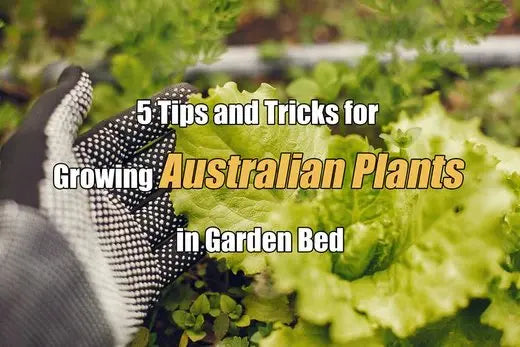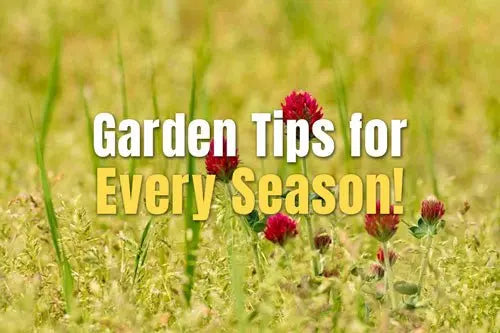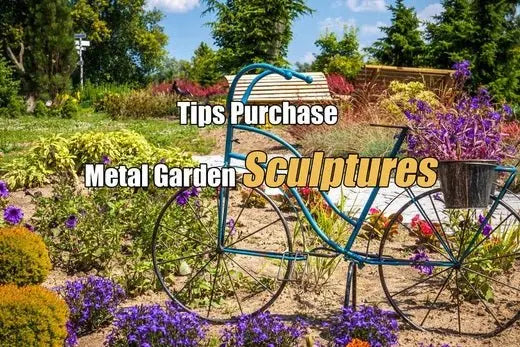Acidic or Alkaline Soil for Plants: Which One Boosts Growth?
The pH scale shows alkalinity or acidity. Soil with a pH below 7 is usually acidic, whereas soil above 7 is often alkaline. Plants like soil with a pH around neutral or slightly acidic.Only a select few can survive in extremely alkaline or acidic soil. Some nutrients are less available to plant roots at higher soil pH levels.
On the other hand, if it is too low, plants may be very effective in their nutrient uptake. This will lead to their deaths from an overflow of nutrients that their systems are unable to handle.

The importance of healthy soil cannot be overstated.
While healthy soil can help keep your garden in good shape, unhealthy soil can lead to several issues. Within a few months, you can tell if the soil in your raised beds is of high quality. Some problems you could encounter due to poor soil conditions are as follows:
- Even after recent watering, the soil's top appears dry and cracked.
- The color of your plant leaves is changing
- The soil in the raised garden bed is compacted, making digging difficult.
- Pests are continually attacking your plants.
- Even after cutting weeds some variety keeps coming back.
- The soil doesn't stay put when you try to lift it.
- Your plants develop and yield slowly.
If you observe any of the aforementioned symptoms, your soil may have a problem. Soil amendments should be included.
Soil in good health is quite dark, practically black.
Soil structure can be just as indicative of quality as color when evaluating a certain soil. It ought to be able to hold onto moisture and crumble easily when wet. You do not want a ball of clay, but you also do not want sand that crumbles in your hands.
What exactly does it mean when soil tests positive for alkalinity?
High levels of magnesium, sodium, and calcium are characteristic of the alkaline soil type. Acidic soil has a pH below seven, while alkaline soil has a pH above seven. Weathering and erosion of rocks rich in calcium carbonate result in the formation of alkaline soil. The high mineral concentration of hard water can also lead to a higher pH.
Most plants in a garden need neutral or slightly acidic soil. However, there are exceptions, like apricot trees and clematis vines. Plant roots have a harder time absorbing nutrients from alkaline soil. This is because it is less soluble than acidic soil.
What it means when a soil is acidic
Acidic soil, often known as acid soil, has a low pH. The range of possible values for soil pH is from 1 to 14. Soil is usually acidic if its pH value is between 1 and 7. Soil acidity increases as the number decreases.
Houseplants and other indoor plants thrive in slightly acidic soil (pH 6.0–7.0). This is due to the fact that the phosphorus in the soil is soluble at that pH level. Phosphorus is an essential element for plant growth. It encourages the growth of edible and ornamental plants.
Plants may suffer when a soil sample becomes overly acidic. This includes, but is not limited to, a decrease in the soil's nutritional content. When the soil's pH falls below five, it is "too acidic" for most plant life.
Aspects of the environment that have an impact on the pH of the soil
Keep in mind that the acidity of clay soil can change based on a number of factors. Though clay soil is typically considered alkaline, with a pH range of 8–10, various factors can influence the pH values. The following can affect soil acidity:
- Parent Material: Some clay soils might be more acidic than others, depending on their origin. This is because the type of rock that breaks down to make soil can affect its pH level.
- Precipitation: Soil acidity tends to be higher in rainier regions, while neutrality and alkalinity predominate in drier areas.
- Organic Matter: Animal and plant matter decay helps to increase soil acidity.
Also read: How To Improve Soil pH In Raised Garden Beds?
What repercussions does an excessively alkaline soil have?
Alkaline conditions can stunt the growth of plants like azaleas, rhododendrons, and blueberries that thrive in acidic soil. A high concentration of calcium carbonate in the soil results in a chalky, easily permeable texture. The leaves and stems of plants rooted in alkaline soils tend to curl and turn yellow. The soil can absorb less water, making it harder for plant roots to take up nutrients.
What results might be expected from very acidic soil?
Too much acidity in the soil can have negative effects on crop production by reducing the amount of available nutrients. This intensifies the harmful effects of substances, reducing plant water use and production.
The factors that contribute to the ever-increasing acidity of the soil
The following are the most common reasons why soils become acidic:
- Nitrification of ammonium
- Acidic parent material
- Harvest of high-yielding crops
- Organic matter decays
- Leaching and rainfall
How can the acidity of soil be decreased as quickly as possible?
Proper drainage
Poor drainage systems contribute to erosion, which contributes to soil acidity. Erosion, which results in the loss of basic cations like magnesium Mg+ and calcium Ca2+, can be avoided with an adequate drainage system.
The establishment of cover crops
When erosion washes or leaches away basic cations, which neutralize acidic cations, soil acidity results. Erosion can be averted, and soil acidity can be avoided, using cover crops like cowpeas. The basic mineral in the soil, which neutralizes the hydrogen cations, is more difficult to remove when you cover the soil surface.
Avoiding using fertilizers high in nitrogen
However, you should avoid highly nitrogenous fertilizers. This is because they also cause soil acidity, even if nitrogen is given to the soil on its own.
Mulching
Mulching is another technique that you can use to lessen soil acidity. Mulching is the practice of covering soil with organic and inorganic materials, such as straw. But the mulch used must be biodegradable. Mulches protect soil from erosion and leaching. When decomposing, it releases basic cations that neutralize soil acidity.

Is the pH of the clay soil acidic or alkaline?
The pH of clay soil is often quite high, around 8, making it quite alkaline. As a result, plant roots are unable to reach the soil's surface and draw up the nutrients they require to flourish. Adding lime to your clay soil will raise its pH even higher.
Soil with a pH level near 6 is ideal for most plants. This is because it allows their roots to absorb phosphorus, magnesium, iron, and other minerals more easily. Alkaline conditions in clay soil deprive plants of essential nutrients. Soils with a pH between 5 and 7 are ideal for growing most plants.
Some examples of plants that do well in clay soil include:
- Turfgrass
- Hydrangeas
- Sunflowers
- Lavender
- Roses
- Apple trees
- Peonys
Is it possible for vinegar to neutralize the acidity of the soil?
Vinegar is a must-have for any cook because it enhances the flavor of food, and you can disinfect the kitchen afterward. Gardeners can also benefit from this powerful liquid. They can use it to adjust the soil's acidity without chemical additives. Soil pH can be lowered by watering plants with equal parts vinegar and water.
What can be done to improve raised beds?
It's not too late to fill your raised beds with excellent, nutrient-rich soil for your plants. Removing the top 6 inches or so of dirt from a garden bed is an easy way to enhance the soil quality if you notice indicators of poor soil without having to dump it all out and start over. There are a number of useful soil amendments to consider, including when dealing with struggling vegetables.
The best soil amendments include the following:
- Rock dust: Dust from rocks like ballast and granite can restore the soil's mineral and trace element content. It improves soil fertility, which in turn helps plants thrive.
- Coco coir or peat moss: These organic, low-weight compounds improve soil moisture retention and air circulation. They have the ability to enhance nutrient availability and soil structure, particularly in sandy soils.
- Compost: Compost manures (from horse, turkey, rabbit, cow, or chicken), leaf mold, mushrooms, and vermicompost are all options. You can also use garden waste and kitchen scraps to create your own.
Raised garden beds made of metal are long-lasting. They are durable and weatherproof, making them a smart purchase for your garden's future. Raised beds made of metal complement any outdoor space. Their contemporary style makes them a versatile addition to any outdoor space.
Conclusion
The success of your garden depends on your ability to recognize and modify the soil's pH. The idea is to work towards a pH suitable for the plants you intend to cultivate, whether working with clay, loamy, or sandy soil.
Keep in mind that most nutrients are available to plants in soil with a 6.5 and 7 pH level. Soil pH testing and adjusting as needed is necessary regardless of whether you grow plants that prefer alkaline or acidic environments.
By Stephen Mwanza
Author Bio: Stephen is a dedicated content creator on best approach when it comes to gardening and home improvement.


